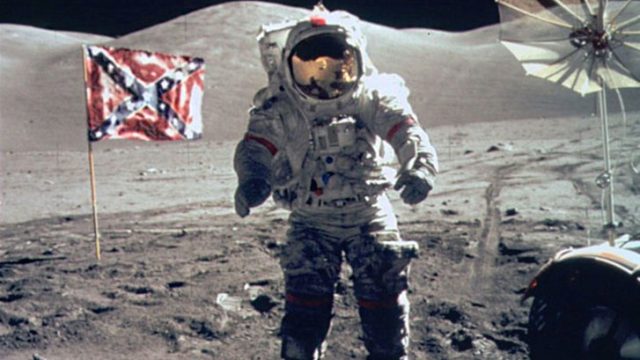As one might expect, BlackkKlansman has generated some interesting ongoing discussion and debate (including here on The Solute on Julius Kassendorf’s review). It’s a Spike Lee joint without a doubt, containing not only writing and directing credits for him, but also his signature style and themes. It’s being compared to the other films of his catalog and analyzed against the accomplishments of his socially-conscious movies like Do the Right Thing.
Lee is the auteur, naturally, but there’s a couple other career threads to trace on the way to BlackkKlansman. One is producer Jordan Peele, long celebrated for his television work before his breakout film Get Out last year. The other is co-writer Kevin Willmott, a University of Kansas film professor and collaborator on Spike Lee’s previous script, Chi-raq.
Willmott is a native Kansan and (like Lee) an alum of NYU’s film program. Balancing filmmaking with duties as a college instructor, Willmott’s work nearly always has a historical bent. After selling a script based on the John Brown slave rebellion, Willmott contributed to scripts for the NBC miniseries The 70s and directed his own script in the micro-budget, difficult-to-find Ninth Street (eBay has some reasonably priced used copies; if you want a new one Wal Mart will chip in free shipping for your $73.29 purchase). Willmott’s second directorial effort landed in Sundance and that’s where he and Lee intersect.
CSA: The Confederate States of America marries the simplest of premises with the most familiar of formats: If the South had won the Civil War, what would a public television, Ken Burns-style documentary of American history look like? The result is the story of a racist nation fighting with traditional allies, aligning itself with Nazi causes and scrambling to defend its borders (in this case, a “cotton curtain” buffers chilly relations with Canada).
Slavery still exists in the modern day world of CSA. Commercials have been included in the “broadcast” of the documentary, most of them hilariously uncomfortable, such as the insurance company that promises to protect “your family… and your property” as a sunlit dolly shot moves past the white family and comes to rest on a smiling young black man working in the yard. The ads are meant to provoke as much as amuse, and gradually the differences between the world described by CSA and the real world blur. The only noticeable difference between the show “COPS” and the CSA version (“Runaways”) is the theme song for the latter is picked on the banjo. A CSA politician caught in a scandal finds himself falling back on the same language used by a certain American politician. The similarities between the CSA and the USA grow and grow until we’re not sure who really did win the Civil War.
It would have shown some remarkable foresight to make this movie in 2015. CSA was released in 2004.
Lee championed CSA at Sundance and it’s not hard to see what attracted him even beyond the themes and the brash execution. In a recent interview with Time, Lee underlined the academic bent to his work:
I think it’s very important people understand that Kevin Willmott and I—the co–writers on the film—are filmmakers, but we’re also both tenured professors of film. So we’re not fucking around. This is our life. This is our lifelong pursuit. We take this shit seriously.
CSA is a preview of the history-bending politics on display in BlackkKlansman.

